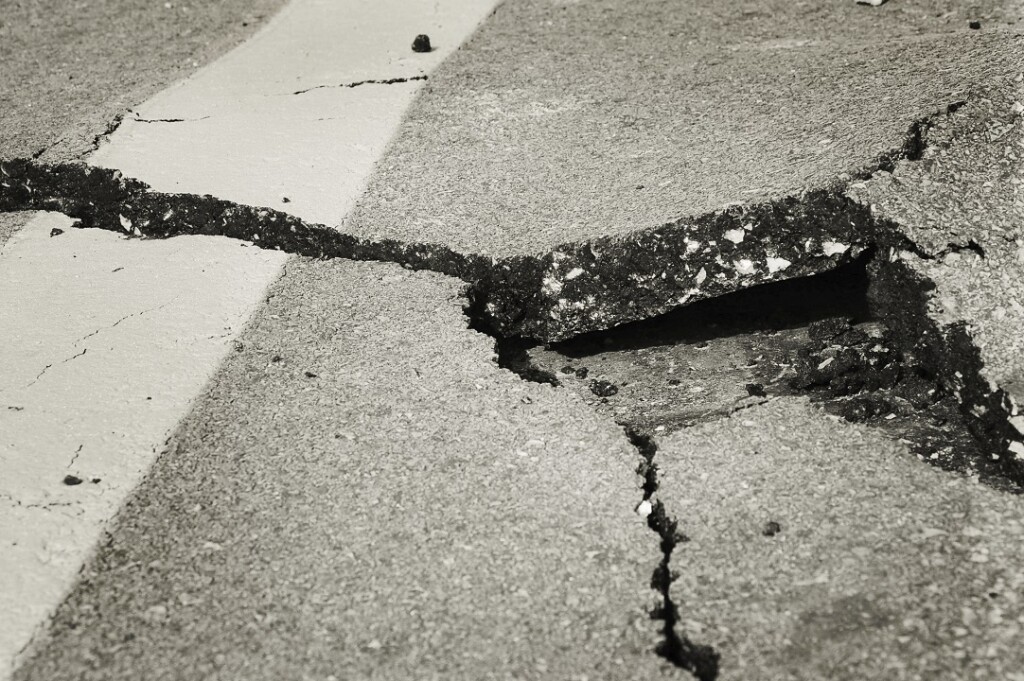You might be installing a new asphalt road or driveway and have learned how to maintain your future blacktop. You might already be aware of the dangers of asphalt cracks and potholes, but that is just a surface understanding of what it really takes for asphalt to stand the test of time. One cannot overstate the importance of asphalt layers; asphalt integrity is more than blacktop-deep.
Why Asphalt Roads Come in Layers
Asphalt roads actually consist of multiple layers, not a single black asphalt layer as you would see on the surface. Why does it need to be in layers rather than one single mass? If the road or driveway was homogenous all the way through, it would be far more likely to crack under the continual pressure of traffic or break underneath with shifting soil. The road would become uneven, which would result in drainage issues and potentially car damage and personal injuries. The layers in asphalt all play a role in making roads and driveways stable and flexible.
The Four Asphalt Layers
Every asphalt driveway, road, or parking lot has at least these four basic layers. Some asphalt structures will differ depending on their application; for instance, if the area expects constant, heavy traffic from loaded semi-trucks, it will have a thicker foundation compared to a small country side road that will not likely get much traffic or very heavy traffic, comparatively.
You also do not install asphalt pavement on raw earth; the soil must be of the right consistency and be compacted so that it is stable. Another term for this step is soil stabilization.
That being said, the four basic asphalt layers are:
- The sub-base: The sub-base is a gravel layer that takes a lot of the weight from traffic above; it helps with shock absorption. The gravel sub-base also assists in drainage, and without this element, water would quickly destroy the road at its foundation.
- The base course: The base course is the bulk of the pavement. It is the most solid part of the asphalt itself, and one could argue that this sublayer is what we really drive on.
- The binder course: The binder course helps the surface layer and the main layer stick together and provides additional support.
- The surface course: The surface course is the road’s skin, protecting it against moisture, dirt, stains, etc. It is the layer that we see and maintain.
Why It Matters to You
Each layer plays a role in supporting the pavement’s integrity, which affects its lifespan. It pays to hire someone who will install all layers correctly so you can have beautiful, functional pavement for years to come.
Receive Asphalt Paving Services with Tri-State Paving
Call Tri-State Paving. We’re a seasoned asphalt pavement company based in Maryland and have the experience and knowledge to help you turn your backyard into the perfect retreat quickly and affordably. Our experts will work with you to find a design and layout for the outdoor kitchen and dining area that you’re sure to love for years and years to come.
Our area numbers are:
West Chester: 610.563.9456
Oxford: 610.932.3566
Delaware: 302.757.4100
Check back here for weekly updates on current projects, important paving facts and info, and smart ideas for homeowners interested in concrete, asphalt, or hardscaping work.

 ASPHALT
ASPHALT
 Commercial
Commercial
 Residential
Residential
 DOT
DOT
 Decorative
Decorative
 Sealcoating
Sealcoating
 Infrared Repairs
Infrared Repairs
 CONCRETE
CONCRETE
 Flat Work
Flat Work
 Decorative
Decorative
 Curbs/Gutters
Curbs/Gutters
 Steps
Steps
 Slab Jacking
Slab Jacking
 Pump Trucks / Pump Trailers
Pump Trucks / Pump Trailers
 HARDSCAPES
HARDSCAPES
 Walls / Borders / Curbs
Walls / Borders / Curbs
 Walks / Patios
Walks / Patios
 Aprons
Aprons
 Steps
Steps
 Columns / Fire Pits
Columns / Fire Pits
 Outdoor Kitchens
Outdoor Kitchens